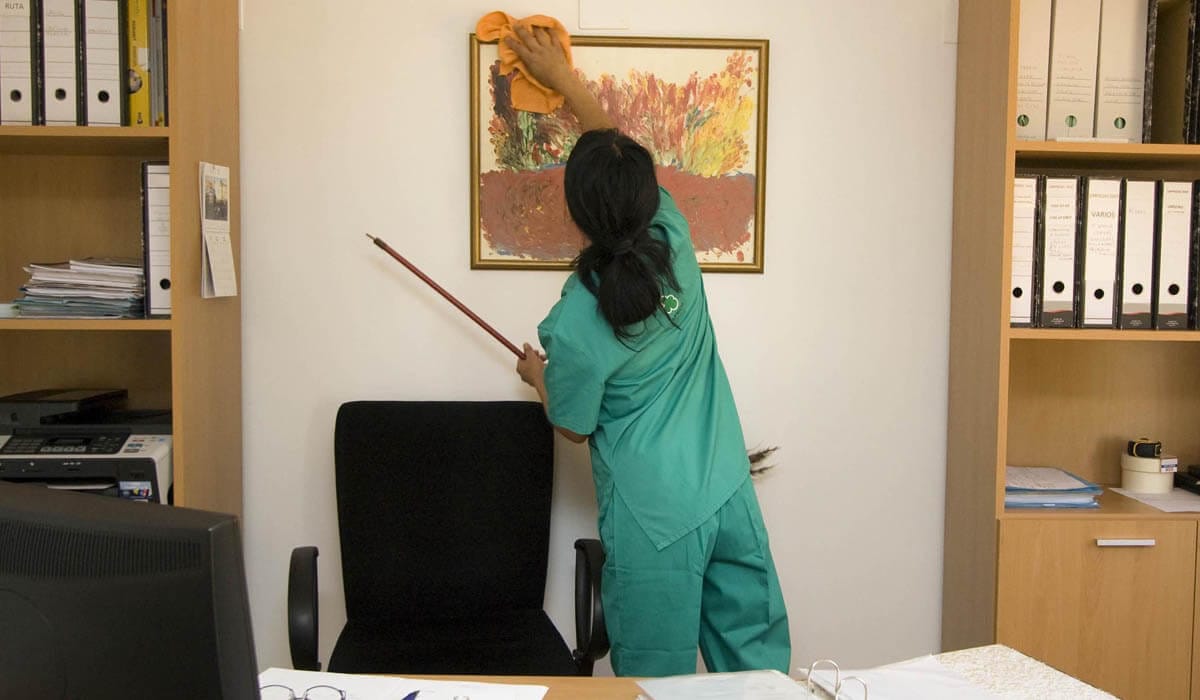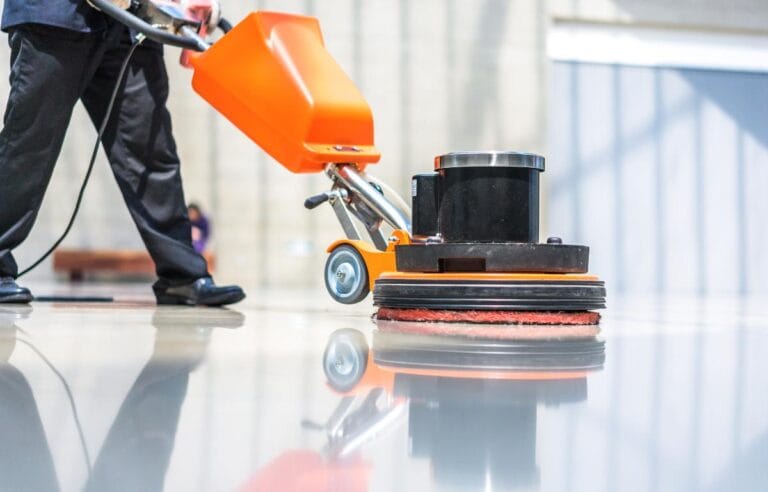It might seem that offices that are cleaned every day do not harbor many germs. Meanwhile, these surfaces are particularly exposed to all kinds of contamination. That is why it is so important to disinfect them regularly, including all critical areas such as desks, computers and computer mice. Regularity is the first key to success, but there is another one that is equally, if not more, important. These are suitable, high-performance disinfectants.
High office pollution – how to deal with it?
Not everyone realizes that office spaces are very exposed to bacteria, fungi, viruses, etc. A lot of people passing through the rooms every day, heavy traffic, moving objects, etc. It turns out that there can be much more contamination in this type of space than in the toilet or on the cutting board. Hard to believe? And yet. Office rooms are nothing more than places for common exchange, which are an excellent base for the development of bacteria.
Spending time in offices doesn’t help either – we spend most of the day there. Another issue is cleaning desks, monitors, keyboards, mice (equipment frequently touched by various people) – this is usually done very rarely, or not at all. People employed in cleaning companies are often prohibited from touching personal items on and around the desk. And the company employee himself, there are no illusions here, rarely washes his desk himself, and if he does, he does it very rarely, using only basic cleaning products (e.g. disposable wipes). This is only superficial cleaning and has nothing to do with disinfection. And this is what we should take care of, especially now in the era of coronavirus.
What requires disinfection in offices?
It is easy to identify the most polluted places in offices. These are the areas that are touched the most during the day. Below is a list of places that are often forgotten about in the context of disinfection:
- One of the most infected places is the desk – there can be up to 10 million bacteria on the countertop. Wiping it regularly is necessary, as is disinfecting it with a proven agent;
- Computer mouse – in the context of the coronavirus, there is a lot of talk about disinfecting the surface of the phone that we constantly touch. It is similar with the mouse, which is under our hand for most of the working day;
- Computer keyboard – here it looks almost identical to that of a mouse or telephone;
- Monitor/laptop – probably the most frequently overlooked element in the office when cleaning and disinfecting, but it requires the same attention as the above-mentioned areas;
- Chair – especially armrests, on which we often lean with our hands (e.g. when standing up);
- Microwave buttons – this is especially important because using a microwave involves eating, and this requires special attention;
- Refrigerator handles – touched many times during the day when employees put in/take out their meals, drinks, snacks, milk for coffee;
- Water dispensers – it seems that since this type of devices are used for pouring water, they do not require so much attention to cleaning, much less disinfection. Nothing could be further from the truth!;
- Door handles – the easiest way to permanently transfer bacteria and viruses;
- Faucets in washbasins – remember that we turn on the water with dirty hands and wash our hands only after turning on the stream. Therefore, the water switch should be disinfected regularly.
How to effectively disinfect an office?
To effectively disinfect the office, we must use appropriate measures, i.e. those that have very high bactericidal properties and a broad spectrum of activity against bacteria, yeasts, fungi, viruses (including coronavirus) and spores. Such a product is DEZOFast by Clinex, which on March 6 obtained Permit No. 8010/20 from the Office for Registration of Medicinal Products, Medical Devices and Biocidal Products. The product will also effectively disinfect waterproof office areas, which is especially important in the current situation with the dangerous coronavirus.
It is also worth disinfecting now when employees (or most of them) work remotely. Especially since viruses of this type can remain on contaminated surfaces for a really long time – up to 28 days. This means that disinfection is necessary now so that everyone can safely return to work. This process should then be repeated regularly, e.g. on weekends when offices are empty. After the pandemic, we must pay even more attention to proper disinfection.
Not only the coronavirus is dangerous, but it is worth mentioning Clostridium difficile sporangia – their occurrence is one of the most common causes of pseudomembranous enteritis. Clinex disinfectants are useful not only in offices, but also in institutions that are even more exposed to contamination, such as medical facilities (hospitals), restaurants, kindergartens and many, many others.






